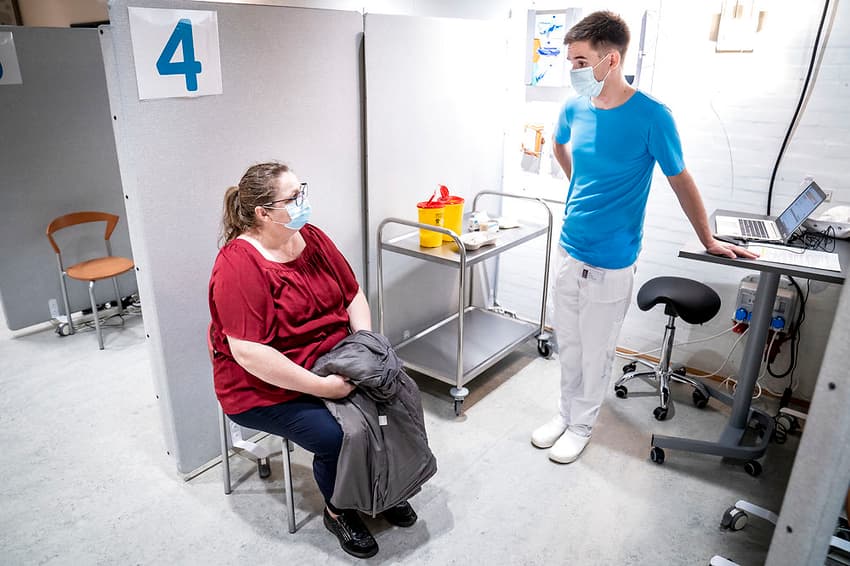Covid-19: Denmark holds on to hope of vaccinating population by summer

Despite delays and reductions in deliveries of Covid-19 vaccines, health authorities in Denmark still plan to complete the country’s vaccination programme by this summer.
The Danish Health Authority expects all people in the country who wish to be inoculated against Covid-19 to be able to complete vaccination including the second dose by this summer.
The overall time scale for the Danish vaccine rollout has been extended by one week, however. Previously projected to be complete by June 27th, authorities now expect to have given the final second doses by July 4th.
Denmark will receive significantly fewer doses of the vaccine in March than was previously expected. The delays mean that some group subsets must wait longer to receive their second dose, around 190,000 people in total, news wire Ritzau writes.
The plan is still subject to uncertainty because it relies on projections for approval of forthcoming vaccines.
The next vaccine expected to be approved for use in the EU is produced by British-Swedish company AstraZeneca, while another, from Johnson & Johnson, could be approved within the next two months.
AstraZeneca is currently involved in a dispute with the EU after notifying that it would initially deliver fewer doses to the union than previously agreed, international media have reported.
“Smaller swings are taken into account in the prognoses, but it is important to stress that this is what they are: prognoses, and they therefore contain a degree of uncertainty,” the Danish Health Authority writes in a statement.
“This is particularly related to the size of forthcoming deliveries,” the authority adds.
Denmark has so far vaccinated elderly care home residents, elderly citizens who receive home living assistance, people in specific risk groups and health and social sector workers.
The next group who will receive first doses is people over the age of 85.
“Our absolute primary focus is to vaccinate our eldest and otherwise most vulnerable. And with the limited number of vaccines we currently have, there is no room to commence vaccination of other groups,” Danish Health Authority director Søren Brostrøm said in the statement.
Vaccination of people under the age of 65 who are not in any specific risk group will not begin until April, according to the current plan.
READ ALSO:
-
Denmark’s Covid-19 vaccination programme feels effects of reduced supply
-
When and how can foreign residents get the Covid-19 vaccine in Denmark?
Comments
See Also
The Danish Health Authority expects all people in the country who wish to be inoculated against Covid-19 to be able to complete vaccination including the second dose by this summer.
The overall time scale for the Danish vaccine rollout has been extended by one week, however. Previously projected to be complete by June 27th, authorities now expect to have given the final second doses by July 4th.
Denmark will receive significantly fewer doses of the vaccine in March than was previously expected. The delays mean that some group subsets must wait longer to receive their second dose, around 190,000 people in total, news wire Ritzau writes.
The plan is still subject to uncertainty because it relies on projections for approval of forthcoming vaccines.
The next vaccine expected to be approved for use in the EU is produced by British-Swedish company AstraZeneca, while another, from Johnson & Johnson, could be approved within the next two months.
AstraZeneca is currently involved in a dispute with the EU after notifying that it would initially deliver fewer doses to the union than previously agreed, international media have reported.
“Smaller swings are taken into account in the prognoses, but it is important to stress that this is what they are: prognoses, and they therefore contain a degree of uncertainty,” the Danish Health Authority writes in a statement.
“This is particularly related to the size of forthcoming deliveries,” the authority adds.
Denmark has so far vaccinated elderly care home residents, elderly citizens who receive home living assistance, people in specific risk groups and health and social sector workers.
The next group who will receive first doses is people over the age of 85.
“Our absolute primary focus is to vaccinate our eldest and otherwise most vulnerable. And with the limited number of vaccines we currently have, there is no room to commence vaccination of other groups,” Danish Health Authority director Søren Brostrøm said in the statement.
Vaccination of people under the age of 65 who are not in any specific risk group will not begin until April, according to the current plan.
READ ALSO:
- Denmark’s Covid-19 vaccination programme feels effects of reduced supply
- When and how can foreign residents get the Covid-19 vaccine in Denmark?
Join the conversation in our comments section below. Share your own views and experience and if you have a question or suggestion for our journalists then email us at [email protected].
Please keep comments civil, constructive and on topic – and make sure to read our terms of use before getting involved.
Please log in here to leave a comment.